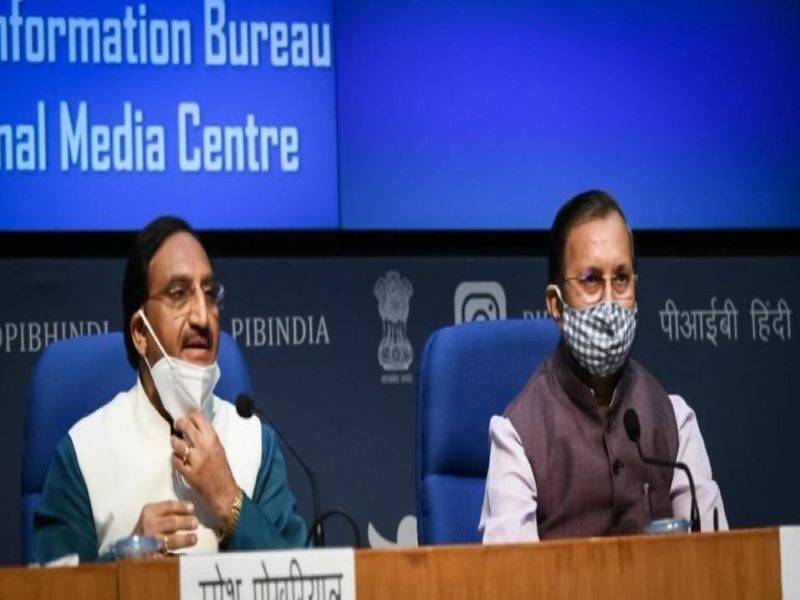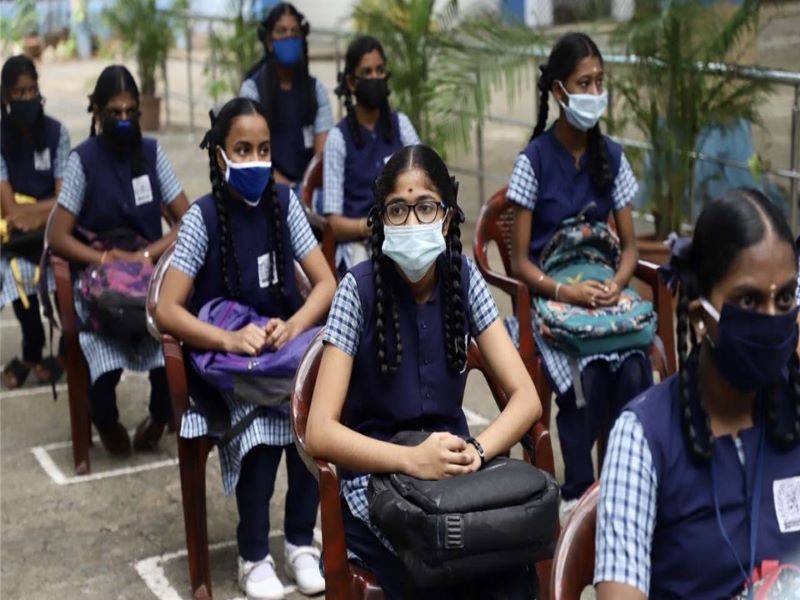
Union Cabinet has approved the new National Education Policy (NEP) 2020 on July 29 and a formal announcement was made jointly by Union Ministers Prakash Javadekar and Ramesh Pokhriyal Ninshak.
During the announcement, Union Minister Prakash Javadekar said that the new National Education Policy has been approved in the cabinet meeting chaired by Prime Minister Narendra Modi. Education Minister Ramesh Pokhriyal Ninshak said that the world's largest consultation process was organized to formulate the National Education Policy 2020and wishes that the country has more than 1000 universities, more than 1 crore teachers and 33 crores, students. Apart from the ministers, Higher Education and School Education Secretary and other officials of the Ministry of Human Resource Development were also present in the briefing program organized by the Press Information Bureau.
Multiple entries and exit options will now be offered in higher education. Those doing a five-year integrated course will not have to do an MPhil. Autonomy will now be given based on the accreditation of colleges. A national mission will be run for mentoring. There will be only one regulator for higher education. Currently UGC, AICTE is included. However, legal and medical education will not be included in this.
Education standards will remain the same for government and private universities. National Research Foundation (NRF) will be established which will promote research and innovation. The Ministry of Human Resource Development has now been renamed as Ministry of Education. Technology will be promoted in education (teaching, learning and assessment). E-courses will be developed in eight major regional languages. The National Educational Technology Forum (NETF) will be established.
The curriculum will be prepared by NCERT for Early Childhood Care and Education. It will be developed for children aged 3 to 6 years. A National Mission on Foundation Literacy and Numeracy will be started for foundation education (for 6 - 9 years). Preparation will be done based on 5 + 3 + 3 + 4 for the study. This includes the last 4 years 9th to 12th. New skills (such as coding) will be introduced. Extracurricular activities will be included in the main curriculum.
Special provision has been made for Gifted Children and Girl Child. Vocational will be added from class 6 onwards. A new National Curriculum Framework will be created to which ECE, schools; teachers and adult education will be linked. Board exam will be divided into sections. Life skills will be added to children's report cards. Education will be ensured for every child by the year 2030. After the exit of school education, every child will have at least life skills.

Let’s look at major 10 points on NEP 2020:
-
The Cabinet has decided to increase public spending on education to about 6% of GDP, which is currently around 4.43%.
-
Board exams can be in modular form, now board exams will be based on knowledge and merit, discouraging memorizing theory.
-
By the 5th grade, a medium of mother tongue education should be made.
-
The government is targeting a ratio of 100% gross enrollment from preschool to secondary level by 2030.
-
Certificate will be given after the first year, diploma after second year and degree after three-four years in multiple entries and exit system.
-
All higher education institutions, except legal and medical colleges, will be through a single regulator.
-
Under the new education policy of the central government, the general criteria for private and public higher education institutions will be adopted. Education Secretary Amit Khare said in the press conference that till date we have different standards for different standalone institutions, different universities for central universities. The new education policy states that the criteria for quality reasons will be the same for everyone, not according to ownership.
-
According to the new education policy, there will be a common entrance examination to be held for admission to universities and higher education institutions. This examination will be conducted by the National Testing Agency (NTA).
-
The school curriculum will be reduced to the main concept. With this, the integration of vocational education from class 6 is included under the new National Education Policy.
-
The new policy seeks to expand access to higher education to 50% of high school students by 2035 and to achieve universal adult literacy before that.
After 34 years (1986), the country is set to adopt a new National Education Policy (NEP) 2020. Let wait till it is passed in both the houses of parliament and wishes to see the bright future of the nation.










